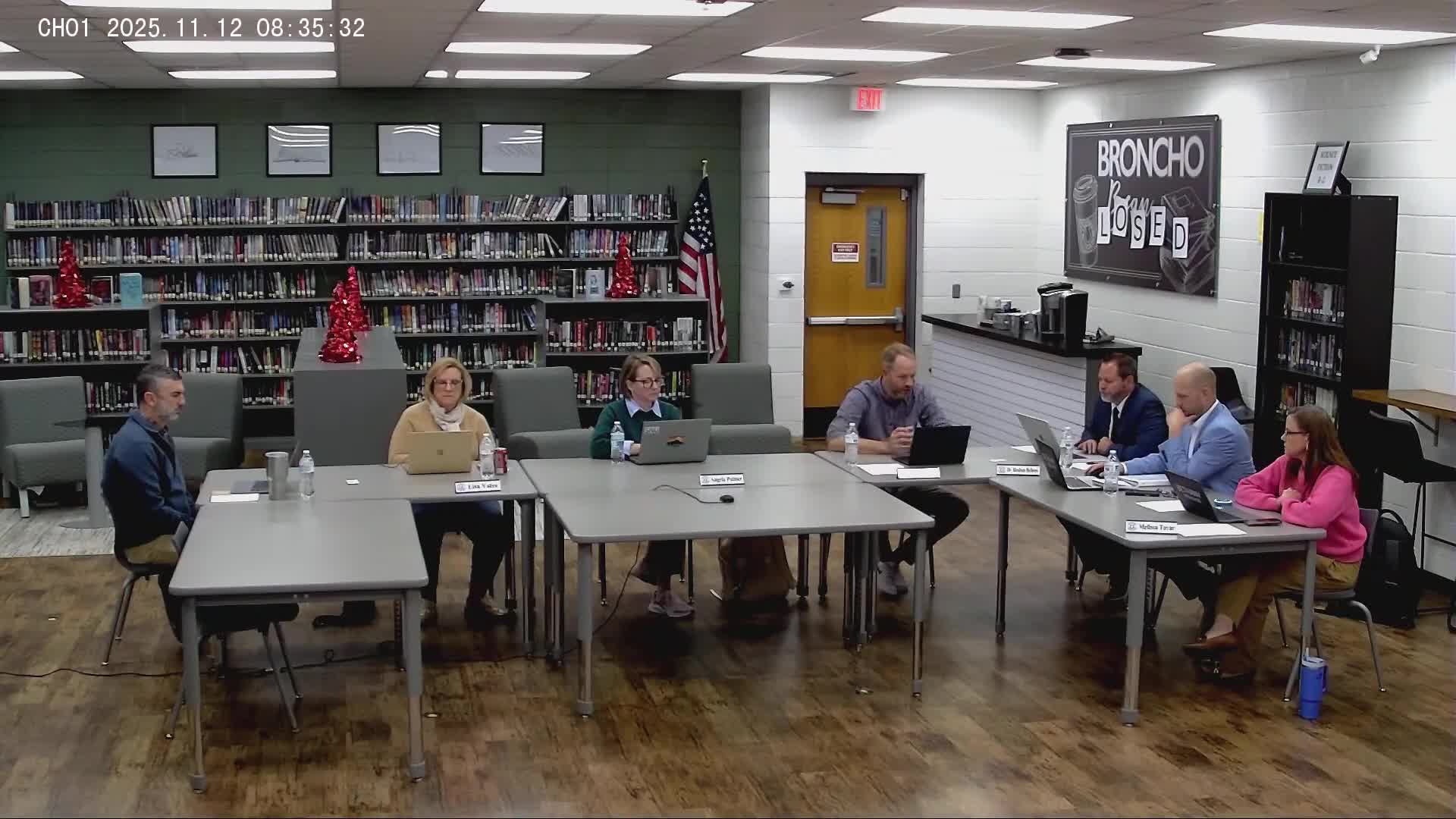Bethany Public Schools staff report: 'Brick and Mortar' RTI rollout, Bronco Derby fundraising, food drive and VR use in special services
Get AI-powered insights, summaries, and transcripts
Subscribe
Summary
District staff described a high-school RTI program called 'brick and mortar' (Wednesdays, ~10:40–11:20), a Bronco Derby fundraiser that raised roughly $15,000–$16,000, a middle-school food drive, and new VR headsets for special education transition and instruction.
Bethany Public Schools staff used the meeting’s staff-report segment to highlight fall activities, a classroom intervention pilot and new instructional tools.
Miss Silva, a high‑school staff presenter, described the district’s 'brick and mortar' initiative as the high school’s version of a response-to-intervention (RTI) model. "Brick and mortar is our version of a structured intervention and enrichment program that's designed to meet every student's needs," she said, describing a three-tier model in which tier 1 is grade-level instruction, tier 2 provides additional targeted support, and tier 3 is intensive, specialist-delivered help. She told the board the program was planned by a teacher committee, rolled out with district professional development and student sign-ups, and that sessions run on late-start Wednesdays, about 10:40–11:20 for roughly 40 minutes.
Teachers and students completed surveys after the initial sessions. Miss Silva said feedback was "overwhelmingly positive," with students appreciating choice and a chance to decompress and with teachers noting that "students were more willing to ask questions and get the support that they needed." The board asked whether the new online sign-up and attendance system improved accountability; staff said the program is independent of Infinite Campus but allows staff to take attendance and cross-check with Infinite Campus when needed.
Elementary staff reported fall community events and fundraising. Speaker 5 said the Bronco Derby fundraiser—rescheduled to a school-day Halloween to maximize student participation—raised around $15,000–$16,000, up from recent family-fun totals of roughly $8,000–$9,000. The superintendent and board praised parent volunteers and the formation of a fundraising committee to sustain future efforts.
Middle-school staff reported a strong food-drive response with broad student participation and leadership by student council; high-school activities staff summarized a college fair with roughly 20–25 institutions and upcoming National Signing Day events with eight student signees.
In special services, staff reported that VR headsets purchased late last year are in use to support transition planning and instruction for students in special education. Staff demonstrated that the headsets include career-exploration modules and immersive lessons (for example, a virtual tour connected to classroom literature), and said a usage rule requires students be seated during headset use for safety. The Children's Center contract has been updated and is expected to return to the board next month for consideration.
Board members and the superintendent framed these items as practical supports for students and staff; no formal actions were taken during the staff‑report segment.
